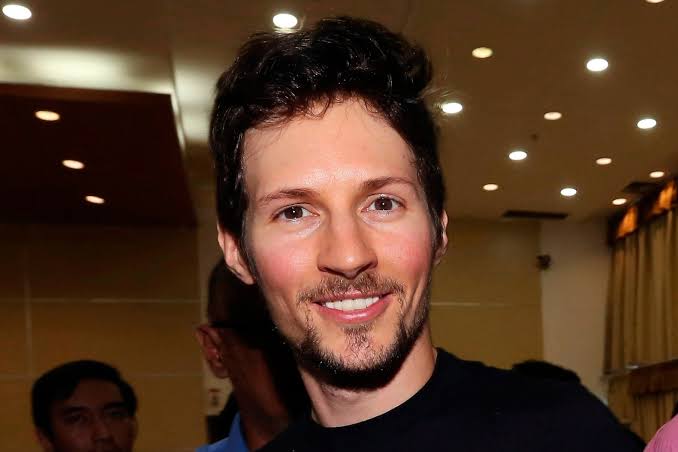Pavel Durov released on bail amid controversial charges in France

In a case that has garnered international attention and sparked debates over free speech and government overreach, Pavel Durov, the Russian-born founder of the popular messaging app Telegram, has been formally indicted by a French court on a dozen charges, including facilitating illegal transactions. Durov, who holds multiple citizenships, including French, was released on a €5 million bail but has been ordered to remain in France until the case concludes.
Durov’s legal troubles began when he was arrested upon arrival in Paris from Azerbaijan. The French authorities wasted no time in levelling serious accusations against him, including complicity in administering an online platform used by a criminal gang to conduct illicit transactions. This charge alone carries a maximum penalty of ten years in prison. Other charges include facilitating fraud, money laundering, the distribution of narcotics and child pornography, and refusal to hand over user data to law enforcement.
The gravity of these charges cannot be overstated, as they strike at the heart of what Telegram represents—a platform that champions privacy and refuses to compromise its users’ data, even in the face of legal pressure. The French court’s decision to bar Durov from leaving the country and to require him to report to a police station twice a week underscores the seriousness with which they are treating this case.
The investigation into Durov’s alleged activities has been shrouded in confusion and controversy from the start. According to the court’s statement, the investigation began in February, contradicting an earlier statement by prosecutors that indicated the probe started just last month. This discrepancy has raised questions about the transparency and motivations behind the investigation, leading some to speculate that there may be political undertones at play.
The investigation is being led by the French Office for the Investigation of Crimes Against Minors (OFMIN), an agency known for its wide-ranging powers in pursuing cases involving child exploitation and related crimes. However, the inclusion of charges related to narcotics and money laundering suggests that the investigation is far broader in scope.
Telegram, which boasts nearly a billion monthly users, has built its reputation on the promise of secure and private communications. The platform is known for its end-to-end encryption and its refusal to hand over user data to authorities. In response to the charges against Durov, Telegram issued a statement asserting that it complies with local laws but maintains that it is “absurd to claim that a platform or its owner are responsible for abuse of that platform.”
This stance has made Telegram a target for governments that seek to monitor and control online communications. The platform has been banned in several countries, including Russia and China, where authorities have demanded access to user data that Telegram has refused to provide. Durov’s arrest in France has only intensified these concerns, with many viewing it as a direct attack on the principles of privacy and free speech.
The arrest of Pavel Durov has not gone unnoticed by anti-censorship activists and advocates of free speech. NSA whistle-blower Edward Snowden was quick to weigh in, accusing the French government of taking Durov “hostage” in an attempt to gain access to private communications on Telegram. Snowden’s comments reflect a growing sentiment among activists that Western governments are increasingly willing to sacrifice civil liberties in the name of security.
French President Emmanuel Macron has attempted to distance his government from these accusations, insisting that Durov’s arrest “is in no way a political decision” and that France “is more than anything attached to freedom of expression and communication.” However, these assurances have done little to quell the suspicions of those who see Durov’s arrest as part of a larger, coordinated effort to undermine platforms that prioritize user privacy.
The arrest of Pavel Durov also has significant geopolitical implications. Durov, who left Russia in 2014 after refusing to hand over user data to the Russian government, has since become a symbol of resistance against state surveillance. His arrest in France, a country that has historically championed human rights and freedom of expression, has raised concerns about the erosion of these values in the face of mounting security threats.
The case has also drawn the attention of the Russian government, with Sergey Naryshkin, the head of Russia’s Foreign Intelligence Service (SVR), expressing concern that Durov could be coerced into handing over user data. Naryshkin’s comments highlight the delicate balance that Durov must maintain between protecting his platform’s users and navigating the complex geopolitical landscape in which he operates.
Pavel Durov’s legal battle in France is far from over, and the outcome of this case could have far-reaching consequences for the future of online privacy and free speech. As the investigation unfolds, it will be crucial to monitor not only the legal proceedings but also the broader implications for the tech industry and the global struggle between privacy advocates and government authorities.
For now, Durov remains in France, fighting to clear his name while continuing to uphold the principles that have made Telegram a beacon for those seeking secure and private communications. Whether he will succeed in this endeavour remains to be seen, but one thing is certain: the world is watching.



